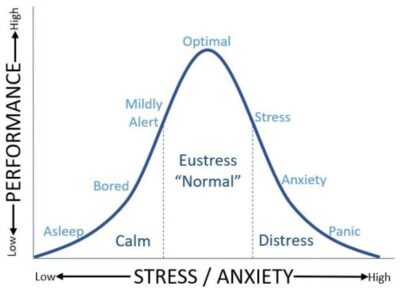Stress Management: How to Cope with Stress

Stress can be a healthy emotion. Stress forces us to focus on our problems and work hard to resolve them. When stress is out of control, it becomes debilitating. Too much stress cripples our ability to problem solve. We must implement stress management skills in an effort to prevent and relieve stress.
Many people teeter right on the edge of all-consuming stress. We must create a balance so that our stress does not tip over to the debilitating stage. If you are already in the stage in which your stress is overwhelming and causes impairment, please know that it can be resolved. Implementing the stress management steps below are important to maintain a healthy stress balance or readjust to a healthy balance if you already in the debilitating stage.
There are several important methods to stress management that are each important:
1. Basic Needs
Basic needs oftentimes decline when we experience higher levels of stress. We stop these needs because we feel like we don’t have enough time or energy. However, it is so important to stick to the basics. This includes behaviors such as an appropriate sleep routine, healthy diet, and personal hygiene.
2. Social Support
Humans are relational – we are meant to socialize. Talking to a friend or loved one can help decrease stress level. Our friend or family member may not be able to solve our problem, but talking through a problem can help ease stress.
3. Life Balance
Have you ever heard the phrase – Don’t put all your eggs in one basket? It is such a true statement! If our life is unbalanced such that we heavily focus one area, then when that area is going poorly, it will cause increased stress.
For example, let’s say a person only focus on their job. They put all their time and energy into working hard to the detriment of all other aspects of life. For example, they barely spend time with family and stop socializing with friends. What then happens when work is going downhill or the person gets laid off? The stress level raises even higher. This speaks to the need to create a balance between multiple aspects in life.
4. Self-Care
When we are stressed, all self-care activities usually get thrown out the window. We put ourselves last. However, engaging in self-care actually helps rejuvenate the mind and body so we actually be more productive. It is important to take time for self-care so that we can be both mentally and physically stronger to tackle stressors.
5. Perspective
When we experience stress, our emotions are heightened and everything seems like a bigger deal than it may likely be. Take a step back and gain a different perspective about the importance of the stressors. Rather than bulldozing your way through, take a pause. Look at the stressors from different angles, considering all potential routes and solutions. This allows us to refocus on what is most important.
6. Prioritize
Having many items on your task list can be very overwhelming. Prioritize small tasks first that take 5 minutes or less. Accomplishing a few small tasks first will clear your mind and motivate you to work on larger tasks. Schedule time to accomplish larger tasks that take an hour or more.
7. Motivator
Allow stress to motivate you to solve problems and accomplish tasks. The stress experience involves an energy chemical called adrenaline. Recognizing stress as a positive emotion that provides fuel allows us to better use it to our advantage.
Conclusions
Will these 5 stress management methods stop all your stress? No! But again remember, some stress is a good thing! These methods will decrease your stress level so that you can more clearly problem solve your stressors!
Want to learn more about stress? Check out these similar articles:




